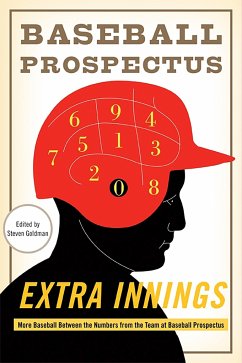
Hot Hand
The Statistics Behind Sports' Greatest Streaks
Versandkostenfrei!
Versandfertig in über 4 Wochen
19,99 €
inkl. MwSt.

PAYBACK Punkte
10 °P sammeln!
This title divulges the psychological and physical science behind streaks. It analyzes the odds of streaks and why they happen. It studies famous streaks, the players behind them, and their long-term effects. Upon witnessing a series of outstanding (or awful) performances, a sports fan or announcer may wonder, What are the odds of that happening? In fact, statisticians have shown that, for the most part, athletic streaks occur about as often as would be expected by random chance; if one flipped a coin a thousand times, one would find many 'streaks' of several consecutive heads (or tails) along...
This title divulges the psychological and physical science behind streaks. It analyzes the odds of streaks and why they happen. It studies famous streaks, the players behind them, and their long-term effects. Upon witnessing a series of outstanding (or awful) performances, a sports fan or announcer may wonder, What are the odds of that happening? In fact, statisticians have shown that, for the most part, athletic streaks occur about as often as would be expected by random chance; if one flipped a coin a thousand times, one would find many 'streaks' of several consecutive heads (or tails) along the way. This counterintuitive finding, which implies that the notion of momentum in sports is greatly overstated, is certain to create a thought-provoking experience for readers. After a brief initial foundation on the study of streaks and relevant methods of statistical analysis, Alan Reifman focuses on actual sports streaks, from the famous - Joe DiMaggio getting at least one hit in fifty-six consecutive games in 1941 and the Los Angeles Lakers winning thirty-three straight basketball games in the 1971-72 season - to the less well-known, such as the University of Dayton men's basketball team going 0-for-24 on three-point shot attempts in a 2008 game. Reifman also examines psychological and physiological mechanisms in sports performance as well as implications for coaching and sport psychology practice. For stats freaks and regular fans alike, "Hot Hand" illuminates one of the most fascinating and little-understood phenomena in sports.













